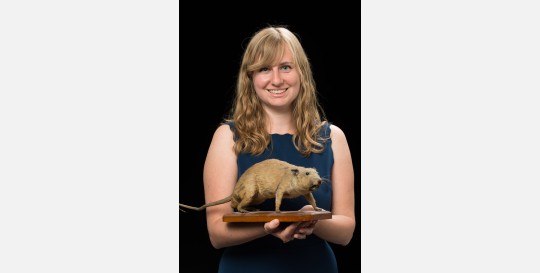INTERCEPT
Completed
01.01.23 → 31.12.24

INTERCEPT - Monitoring the trade in exotic animals, wild meat and the pathogens they carry
Animals and animal products are imported on a daily basis into Belgium, both legally and illegally. Several federal government agencies are competent to enforce laws aimed at preventing illegal import of wildlife and exotic pets, banning the importation of undocumented meat by passengers, avoiding the introduction of invasive alien species and the import of transmittable animal diseases. Each agency, however, currently works within its own framework and collects data tailored to its specific needs. A vital part of the exotic animals action plan is to improve the monitoring of the import of wild animals, their products and associated zoonotic pathogens.

In this project we are developing an operational and robust data collection workflow for the long-term monitoring of the import of exotic animals and wild meat into Belgium and of the associated health risks. Through literature reviews, close discussions with the relevant public authorities and institutions linked to public authorities, database construction and protocol trial runs, we aim to (1) increase the knowledge of the scale and diversity of the (illegal) trade in exotic animals and wild meat, and of its associated pathogens, (2) move towards a centralized database of incoming exotic animals and derived products imported into Belgium, (3) enable the sharing of this database among the different federal public services, agencies and other stakeholders, (4) establish optimized in-field protocols for data recording and biological sampling, and (5) establish workflows for laboratory pathogen testing and species identification. In this way, an efficient and durable work programme for monitoring the legal and illegal import of exotic animals and animal products will be established. Such a strategy will allow to evaluate the impact of implemented measures concerning border controls and sensitization, and to obtain a data-driven, evidence-based assessment of the risk of emerging infectious diseases through this trade.
Funding
Belspo and FPS Public Health, Food Chain Safety and Environment (BRAIN-be 2.0)
Partners
in collaboration with Federal Public Service Public Health, Food Chain Safety and Environment; the Federal Agency for the Safety of the Food Chain; and the Federal Public Service Finance: Customs and Excise
Internal members
External members
- Dr. Nathalie Smitz (Royal Museum for Central Africa, BopCo)
- Dr. Kaat Ramaeckers (Viral diseases, Sciensano)
- Dr. ir. Sanne Terryn (Viral diseases, Sciensano)
- Dr. Vincent Sluydts (Evolutionary Ecology Group, University of Antwerp)
- Prof. Herwig Leirs (Evolutionary Ecology Group, University of Antwerp)


